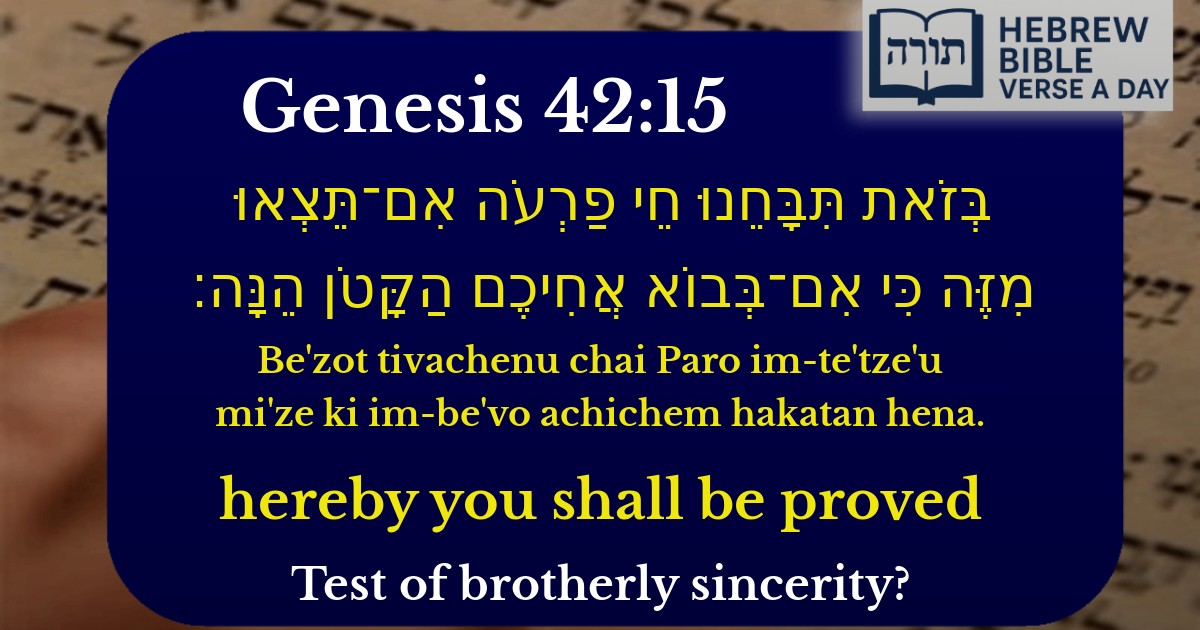Frequently Asked Questions
Q: What does 'hereby you shall be proved' mean in Genesis 42:15?
A: In Genesis 42:15, Joseph (disguised as an Egyptian ruler) tests his brothers by demanding they bring their youngest brother, Benjamin, to Egypt. The phrase 'hereby you shall be proved' means their honesty and truthfulness would be tested by whether they could fulfill this condition (Rashi on Genesis 42:15).
Q: Why did Joseph demand that his brothers bring Benjamin to Egypt?
A: Joseph wanted to see if his brothers had changed since they sold him into slavery. By asking them to bring Benjamin—his only full brother—he tested whether they would protect Benjamin or harm him as they once did to him (Midrash Bereishit Rabbah 91:7).
Q: What lesson can we learn from Genesis 42:15?
A: This verse teaches the importance of testing people's sincerity before fully trusting them. Joseph, though he recognized his brothers, wanted to ensure they had repented for their past actions (Rambam, Hilchot Teshuva 2:1).
Q: How does Joseph's test of his brothers apply to us today?
A: Just as Joseph tested his brothers' integrity, we should also carefully assess people's character before placing trust in them. The Talmud (Chullin 92a) teaches that trust must be earned through consistent, honest behavior.
Q: Why did Joseph swear by Pharaoh's life in Genesis 42:15?
A: As the viceroy of Egypt, Joseph spoke in a manner fitting his position, using Pharaoh's name to emphasize the seriousness of his demand (Ibn Ezra on Genesis 42:15). This showed his authority and the importance of the test.


Context of the Verse
The verse (Bereshit 42:15) records Yosef's words to his brothers when they come to Egypt to buy grain during the famine. Yosef, unrecognized by them, accuses them of being spies and sets a condition for their release: they must bring their youngest brother, Binyamin, to prove their honesty.
Phrase-by-Phrase Analysis
Theological and Ethical Implications
The Sforno teaches that Yosef's test was divinely orchestrated to bring the brothers to teshuvah (repentance) for their earlier actions. By forcing them to confront their past—specifically their treatment of a younger brother—they would rectify their sin through sincere remorse and changed behavior (Sforno on Bereshit 42:15).
Connection to Later Events
The Talmud (Chullin 92a) draws a parallel between this episode and future Jewish history, noting that just as the brothers' descent to Egypt began with hardship but led to redemption, so too will Israel's exiles ultimately culminate in geulah (redemption). Yosef's hidden identity during this trial symbolizes Hashem's concealed hand in guiding Jewish destiny.